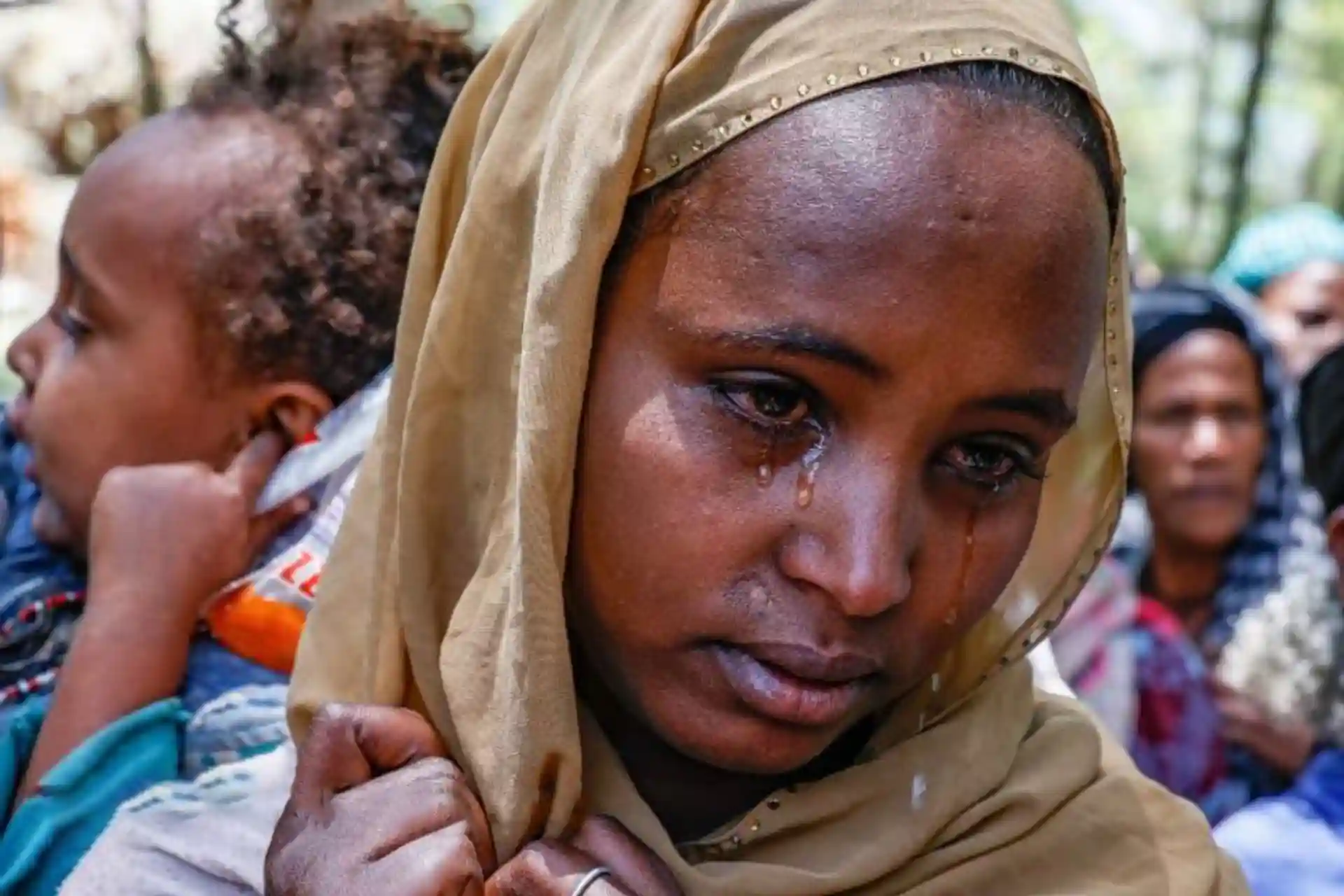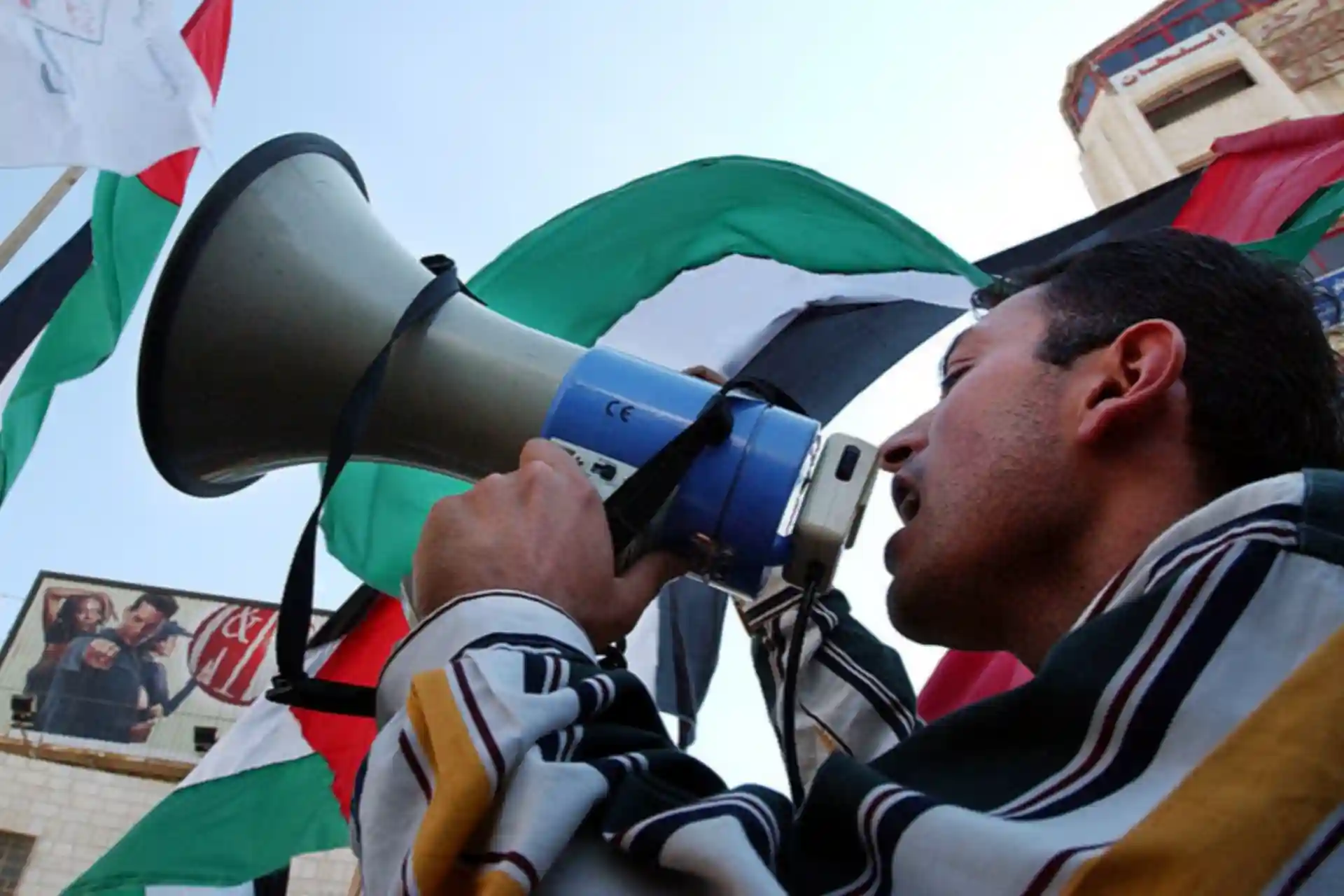30.07.2025 17:25
1033
Who lit the fire of conspiracy in Sudan?
After the October 2021 coup, Sudan was ruled by a council of generals. However, for two years, a bloody war has been going on between the two main ones: General Mohammed Hamdan Dagalo, commander of the Rapid Reaction Forces (RSF), and Abdul Fattah al-Burhan, commander of the regular army and chairman of the council. Thousands of Muslims have been killed. According to the UN, more than 12 million people have fled their homes. Both sides - the army and the RSF - are accused of committing war crimes.
An estimated 825,000 children are at risk in North Darfur, which has been under siege for seven months, with food, water and medicine shortages reaching unprecedented levels in the region. RSF soldiers alone massacred up to 300 Sudanese, including pregnant women and children, in the town of Bara between 10 and 13 July. Another 25 people were killed in North Darfur between 24 and 25 July.
Emergency Lawyers reports that 200 people were burned alive by riot police in the village of Shagalnom. Kidnappings and sexual violence continue.
These are just some of the tragedies in Sudan. The situation may be worse than we think. In turn, a reasonable question arises: how did the country get to this point? Are there hidden forces setting the Muslim land on fire?
One of the phenomena that has occupied and clouded the minds of Muslims for decades is the "theory of conspiracy", according to which it is believed that there are forces that constantly plot against Muslim countries. The danger of this thinking is that it denies its own weaknesses and failures. As the famous scholar Muhammad al-Mukhtar al-Shinqiti said, a Muslim's excessive or, conversely, indifferent approach to reality deprives him of the ability to analyze objectively and logically.
We know that "hidden forces" have been involved in Sudan's wars, from the year before Sudan declared independence in 1955 to the present day. Regardless of the grave mistakes of the Sudanese elite, their ideological orientations, and political biases, Israel has been a key player in these interventions, directing events from behind the scenes.
One of these serious mistakes was the failure to fully understand Israel's role in the wars in Sudan and to develop effective strategies against it. Israel began to study the socio-political structure of Sudan very early. Based on this study, it developed a strategy that was imbued with security interests and ancient mythological ideas. According to those myths, the tomb of Moses is located in the Ethiopian church of Aksum. The Ethiopian kings who ruled Sudan in ancient times were of Jewish blood, that is, from the descendants of Solomon (peace be upon him), that is, one of the tribes of the Children of Israel disappeared in South Sudan and the Lakes region.
The "idea" for Israel's Sudan policy comes from David Ben-Gurion's famous statement:
"We (Israel) are a small nation. Our capabilities are limited. We must overcome these limitations by identifying and studying our weak points in the war with our enemies in the Arab countries. Especially when we intensify conflicts between ethnic, sectarian groups and minorities, we must make them an insoluble problem."
This "idea" defines how Israel deals with Arab countries. Based on it, the Jewish state has developed a "periphery strategy" - a strategy of increasing instability in the peripheral regions of Arab countries. This was done precisely through the division of South Sudan.
The goal of this strategy is to distract Arab countries from their own problems by inciting ethnic conflicts or border conflicts, so that their armies will be unable to support countries fighting against Israel.
To prove that these plans were made long ago, we recall a speech by Mossad head Meir Amit in 1959. He said this at a graduation ceremony for future soldiers:
"To curb the threat of nationalism, we need to boost the morale (self-confidence) of non-Arab groups in Arab countries - especially in countries like Iraq, Syria, Lebanon and Sudan."
To understand the devastation caused by these "hidden hands" belonging to Sudan, it is necessary to examine the following documents:
In Ariel Sharon's "Kivunim" document, presented at a NATO ministerial meeting in 1983:
"Sudan is the most divided country in the Arab and Islamic world. It is home to four distinct populations, with a Sunni Muslim minority ruling over a majority of non-Arabs, pagans and Christians," it says. Instead of a conclusion, the emphasis is on the fragmentation of Libya and Sudan.
In 2008, Israeli Minister of Internal Security Avi Dichter said: "Sudan is Egypt's strategic rearguard. During the war, it was a training ground for the Egyptian air force and ground army, providing them with a safe haven. Weakening them, seizing control, and preventing them from becoming a strong centralized state was essential for Israel's national security."
In "The Mossad Mission in South Sudan" (agent David Ben-Uziel) and "Israel and the South Sudan Liberation Movement" by Moshe Faraji:
Israel's military, political, and economic support for the rebels in South Sudan is covered in detail: supplying weapons, sending experts, training tens of thousands of soldiers, blowing up bridges, capturing cities, and disrupting infrastructure.
Faraji cites the following as Israel's successes:
The Arab Muslim world's suspension of aid to the Sudanese government.
Stop the construction of the Jangli Canal. This project was supposed to provide Egypt and Sudan with 5 billion cubic meters of water, but Israel convinced the southerners that the project would endanger them.
He was able to awaken national consciousness among southerners and encourage them to decide to secede from the north.
From these documents, it can be concluded that Israel considered Sudan a strategic enemy from the beginning and pursued a policy aimed at ensuring the continuation of internal conflicts against it.
Avi Dichter also says:
"It was we who created and exacerbated the Darfur crisis, because Sudan should not have had time to mobilize its potential. We are now continuing the strategy we started in the South in the West. This has led to a continuing crisis and division in Sudan. As a result, Sudan has broken up into several parts."
To summarize, Israel's strategic policy towards Sudan is as follows:
- Weakening Egypt through its southern neighbor and preventing any cooperation.
- Preoccupying Sudan with internal conflicts and intensifying conflicts between ethnic and religious groups.
- Prevent Sudan from becoming a centralized power that prevents it from utilizing its rich resources.
- To divide Sudan into pieces by weakening or "cutting off" its peripheral regions.
In Avi Dichter's words, "A weak and divided Sudan is better than a strong and influential Sudan."
Israel's goal was not only to provoke wars - it also tried to increase diplomatic pressure on Sudan through international organizations. At the height of the Darfur conflict, Jewish organizations from around the world formed a coalition of more than 180 organizations to promote the idea of "genocide in Darfur." These initiatives were carried out under the auspices of the Holocaust Museum and the Save Darfur Foundation in the United States, as well as the Jewish International Service Agency. As a result, the Sudan issue reached the International Criminal Court.
Today, Israel has once again emerged as one of the most active behind-the-scenes players in the war launched by RSF.
The war began after Sudan normalized relations with Israel and the Hamdok-led transitional government joined the "Abraham Accords." Israel has strengthened diplomatic relations with Khartoum, especially in an attempt to hide its intention to prolong the war, offering to mediate between the parties. Former Foreign Minister Eli Cohen confirmed the mediation efforts, but no further details have been provided. This suggests that Israel is actually seeking to weaken both sides.
In addition, after the war broke out, the Middle East Eye website published an article titled "How Israel plans to win the war in Sudan?" It stated that Israel was pleased with Hemedti's services against Muslims in Libya and that he had promised to eliminate Muslims within the Sudanese army.
Recently, as the government army began to gain the upper hand, Israeli officials accused Sudan of having ties to Iran. They called it "Africa's Hamas" and began to demand direct intervention. The Sudanese leadership now needs to reconsider its foreign policy and seek the help of strategic allies to expose and thwart these treacherous plans.



